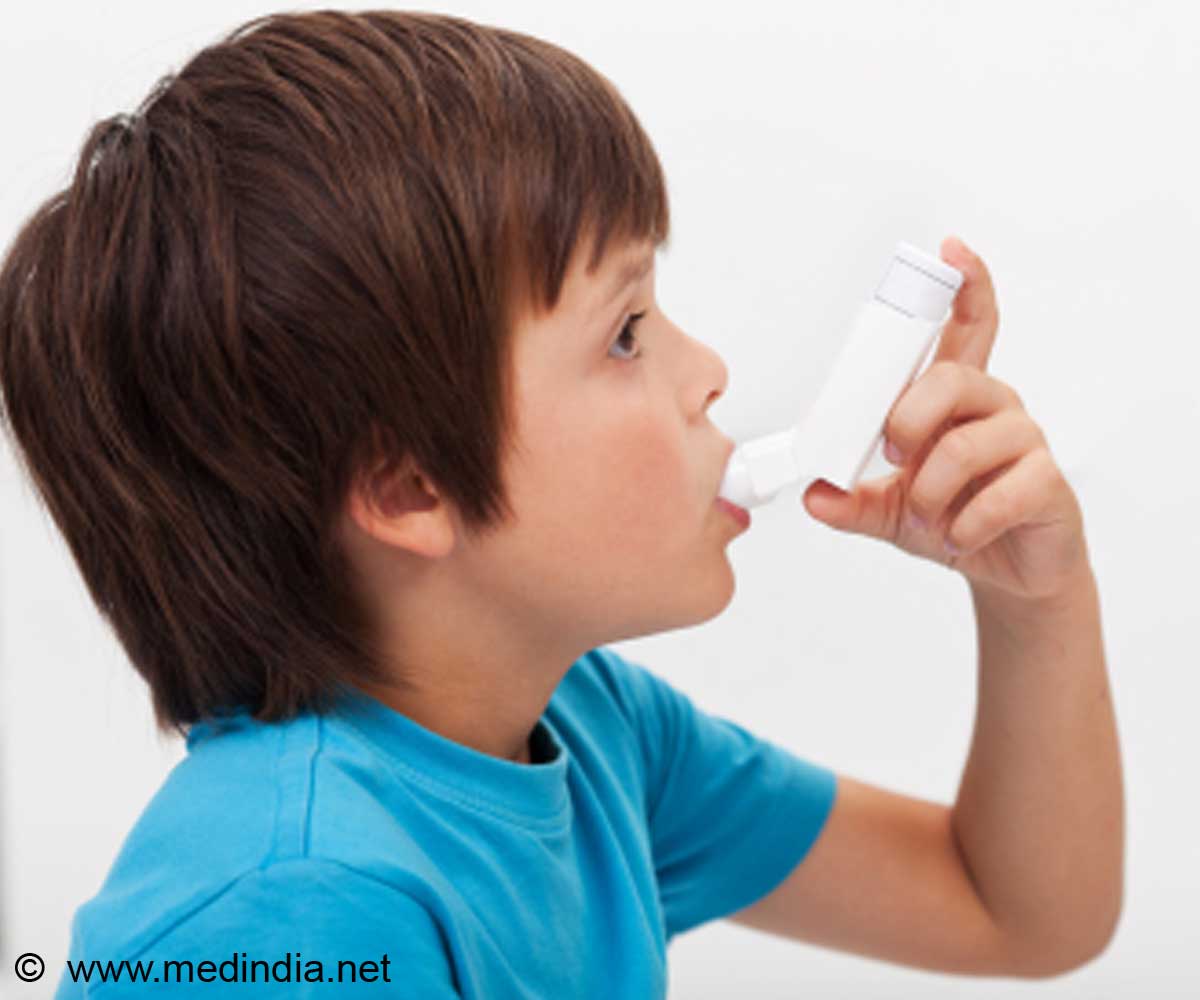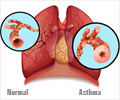Allergic asthma is caused by increased IL-17A expression produced by T-helper 17 cells. Blocking the action of these two molecules could offer new treatment.

‘Severe allergic asthma with neutrophils is due to increased IL-17A expression produced by T-helper 17 cells. Blocking the action of these two pro-inflammatory molecules reduces symptoms of allergic asthma.’





"Blocking either of these molecules stopped symptoms of allergic asthma in mice and we hope this could lead to development of a new therapy for severe (Th17) allergic asthma in humans," commented senior author Bernhard Ryffel from the CNRS-University of Orleans, France.Asthma is a common inflammatory lung condition of varying severity. Asthma and allergies are frequently linked and people with allergic asthma can have flare-ups or attacks in response to exposure to certain environmental factors such as house dust mites.
During an attack of allergic asthma, immune cells known as T-helper cells respond to inhaled allergens and trigger the production of pro-inflammatory molecules that lead to the symptoms seen in asthma such as constricted airways and wheezing.
"Severe allergic asthma with neutrophils is due to increased IL-17A expression produced by T-helper 17 cells," explained Ryffel.
In this study, the researchers first exposed mice to house dust mites and found that production of pro-inflammatory IL-17A and IL-17F was triggered in the lungs of the animals.
Advertisement
To test these results further, the researchers used anti-IL-17A and -IL-17F antibodies as a treatment in mice experiencing a respiratory allergic reaction to house dust mites. They found that the allergic immune response and asthma symptoms were dramatically reduced in these mice, suggesting if these findings can be replicated in humans that they could lead to a new treatment for allergic asthma attacks.
Advertisement
Dr Karl Staples (University of Southampton, UK), an expert on allergic asthma who was not involved in the research, commented: "Historically, IL-17 has been thought to be an anti-bacterial program of immunity. This work demonstrates that there is also an intimate link with the allergic program and specifically with airway hyper-responsiveness.
"Much further work in both models and humans is required to fully untangle this complex web of immune responses. The evidence presented further suggests that IL-17 is necessary only for the initial sensitization to allergen and may therefore explain the recent finding that an IL-17RA antibody was unable to affect established asthma symptoms in a recent clinical trial."
Source-Eurekalert















